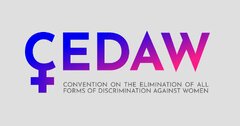United Nations Human Rights Committee calls for urgent improvements to Ireland’s legal aid system; CEDAW is one of eight international human rights bodies which have voiced concerns about access to justice in Ireland
8 July 2025

- The United Nations Committee on the Elimination of Discrimination Against Women (CEDAW) Committee has issued its report on Ireland’s progress in meeting its international human rights obligations under the Convention on the Elimination of Discrimination Against Women.
- FLAC (Free Legal Advice Centres) was part of a civil society delegation at the United Nations in Geneva which briefed CEDAW in advance of their review of Ireland’s record on 20 June 2025.
- CEDAW’s final report, which issued yesterday, has adopted several of FLAC’s recommendations:
- CEDAW has called on Ireland to “expedite the drafting and enactment” of new equality and anti-discrimination legislation. It has highlighted the need to “strengthen support for victims of workplace sexual harassment… and ensure effective remedies and compensation for victims”, as well as to ensure that the legislation “[includes] of the broad range of internationally recognized grounds of discrimination against women and girls, including intersecting forms of discrimination”.
- CEDAW has made several recommendations in relation to Ireland’s system of civil legal aid, including by highlighting the need for targeted legal services for Travellers, Roma, migrants and people with disabilities. It has also called on the State to “[eliminate] restrictive financial eligibility criteria for legal aid” and to “expand access to legal aid and legal representation for women in all areas of law where discrimination occurs, including labour disputes, welfare benefits and other civil matters”
FLAC has welcomed the publication of UN Committee on the Elimination of Discrimination Against Women concluding recommendations concerning Ireland and the Committee’s particular focus on the area of access to justice throughout its report. FLAC has engaged with CEDAW throughout the review process, and briefed Committee members about our concerns and recommendations in Geneva in advance of its examination of the Irish State delegation.
FLAC Chief Executive Eilis Barry commented:
“CEDAW’s report underscores the crucial role of access to justice and access to legal assistance in securing human rights and equality for all groups including women, Travellers, Roma, minority ethnic and migrant communities, and people with disabilities. The Committee has highlighted the many barriers to justice which exist in Ireland, including the ‘restrictive’ means test for civil legal aid, the fact that the Legal Aid Board cannot promote awareness of legal rights, and the absence of legal aid in social welfare, employment, discrimination, harassment and sexual harassment cases. CEDAW has called on the State to address these issues and to provide greater support for targeted legal services to meet the needs of disadvantaged people and communities.
CEDAW’s report could not be more timely. Ireland has recently arrived at a unique moment of opportunity to respond to our ongoing legal aid crisis. The Civil Legal Aid Review Group has now reported to the Minister for Justice. The ‘Migration Pact’ requires the State to introduce new forms of public legal assistance for international protection applicants, including early information and advice (both of which should be mainstreamed into all areas of the legal aid system).
CEDAW is one of eight European and international human rights bodies which have expressed serious concerns about access to justice in Ireland. Other bodies which have called for improvements to the system of civil legal aid include the UN Committee on the Elimination of Racial Discrimination, the UN Committee on Economic, Social and Cultural Rights, the UN Committee on the Rights of the Child, the European Committee of Social Rights, and the Council of Europe GREVIO Committee (which monitors compliance with the Istanbul Convention on preventing violence against women). The existing system is clearly incompatible with our European and international obligations and requires urgent reform.
Separately, the Oireachtas Equality Committee has begun its consideration of the draft Equality Bill. FLAC will appear before that Committee next Thursday (17 July). The Equality Bill is another golden opportunity to respond to CEDAW’s recommendations and to breathe fresh life into Ireland’s prohibition of discrimination. FLAC has long campaigned for greatly improved equality legislation and we look forward to engaging with the Committee about how the Bill may be strengthened.
ENDS.
- CEDAW’s full concluding recommendations on Ireland may be accessed here
- Read FLAC’s full report to CEDAW may be accessed here.
ABOUT FLAC: FLAC (Free Legal Advice Centres) is an independent human rights and equality organisation which exists to promote access to justice. FLAC operates a telephone information and referral line (from which approximately 12,000 people receive basic legal information each year) and phone advice clinics (from which over 3,300 people received basic legal advice in 2023). As an Independent Law Centre, FLAC takes on a number of cases in the public interest each year. We also operate a Roma Legal Clinic and Traveller Legal Service. FLAC undertakes policy and law reform work in relation to human rights and access to justice, and in areas where we frequently provide legal assistance.
FLAC’s report to and engagement with CEDAW were informed by our first-hand experience of promoting gender equality and access to justice for women and girls across various areas of our work. The majority of callers to FLAC’s Telephone Information and Referral Line are women. FLAC provides thousands of women with early legal information and advice in the areas of family and employment law each year. Since 2015, equality/discrimination has consistently been one of the areas of law in which FLAC most often provides legal representation. FLAC frequently represents women who have experienced intersectional discrimination, including Roma women who wear traditional Roma attire and who experience discrimination on the basis of their ethnicity and gender.